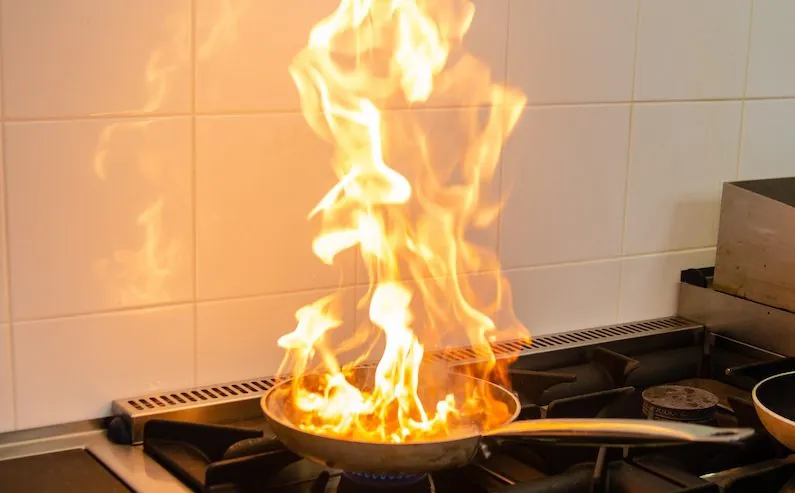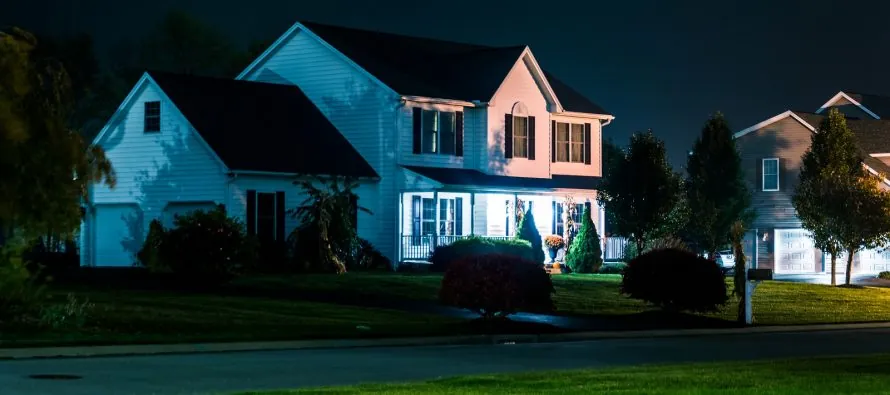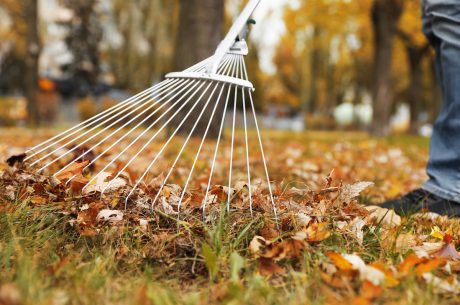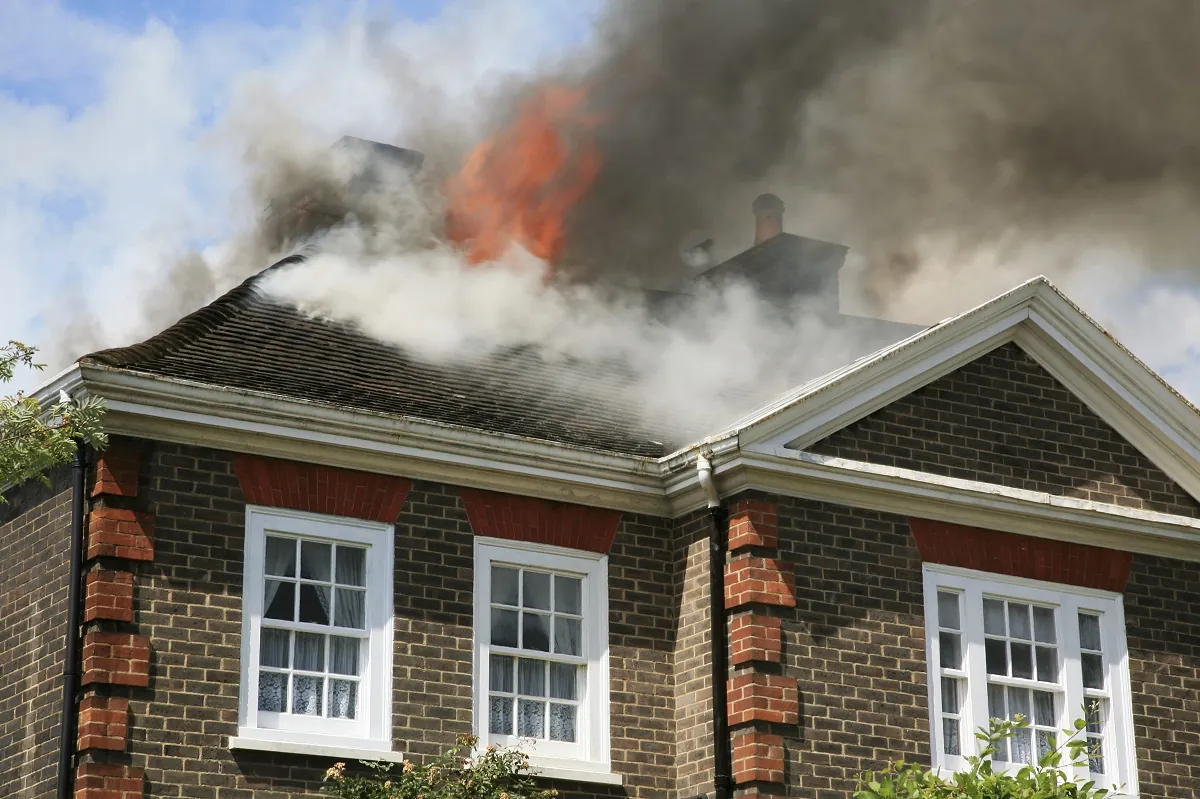Kitchen fires can start small and quickly escalate into a full-blown disaster. Other areas of your home can feel the impact of the fire, and there is also the risk of bodily harm. Knowing what to do in a kitchen fire emergency and how to prevent one from happening ensures that your safety remains a priority. This blog will discuss in detail the importance of kitchen fire safety for your peace of mind.
What Are the Most Common Causes of a Kitchen Fire?
Many factors can cause a flame in the kitchen to become out of control, such as leaving something unattended on the stovetop or grease buildup igniting. Electric appliances in poor conditions can also create fires, such as toaster ovens and microwaves. Cooking oil and other flammable liquids can also pose a fire risk.
How to Put Out a Kitchen Fire
Regardless of the cause, a kitchen fire requires an immediate response.
If you can, you should first unplug or turn off the heat source; this includes the stovetop, oven, or any electrical appliances. Doing so will prevent the fire from spreading to other areas. You can try to smother the fire with a wet towel. Then, consider opening doors and windows to ventilate the space.
Microwave and Oven Fires
If you find yourself face-to-face with flames in your microwave or oven, there are three easy steps you can follow to extinguish them:
1. Turn off the heat source. Doing so will prevent the fire from spreading.
2. Cover the flames with a damp towel or baking soda. This will help to smother the fire and prevent oxygen from reaching it. Let the fire burn out in the enclosed space.
3. Call the fire department if the fire is out of control. It’s always best to err on the side of caution and let the professionals handle it.
Oil or Grease Fires
NEVER throw water on an oil or grease fire!
Putting out an oil or grease fire is not as simple as using water. Using water feeds the fire. The best way to put out an oil or grease fire is to smother it with a lid or a fire blanket. You can use baking soda if neither of these items is available.
Don’t hesitate to call the fire department if the fire is widespread. They can handle large-scale fires if a fire extinguisher isn’t sufficient.
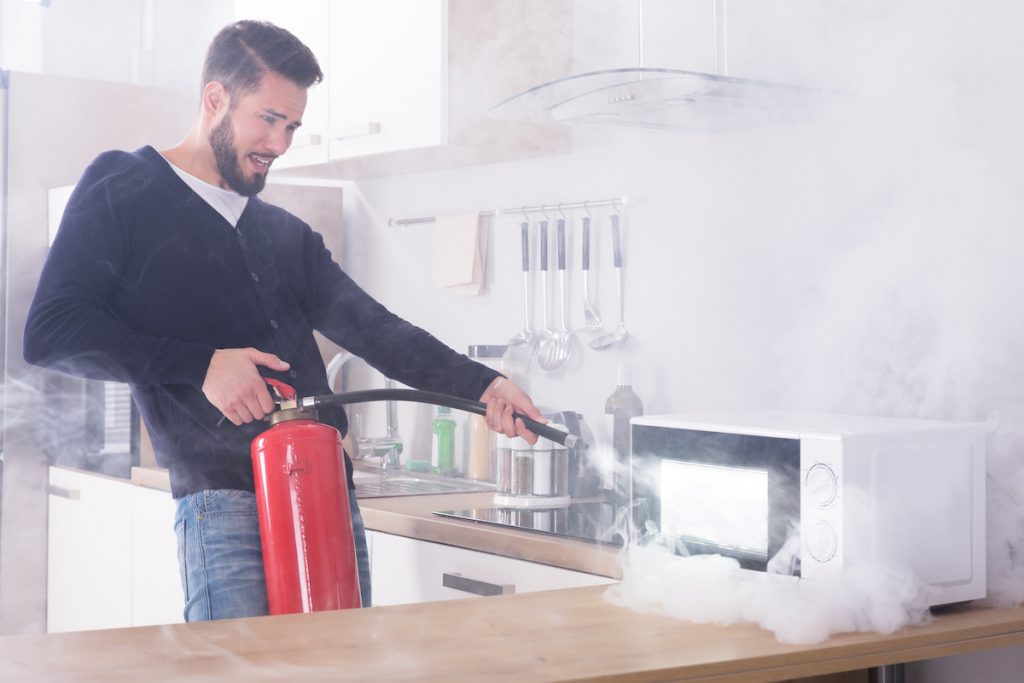
Kitchen Fire Prevention: Things to Consider
Because our kitchens are our spaces to cook, dine, and assemble, most fire mishaps occur here. Thousands of home fires start in the kitchen, culminating in yearly property damage. However, you can keep some simple steps in mind to ensure your kitchen avoids a fiery fate.
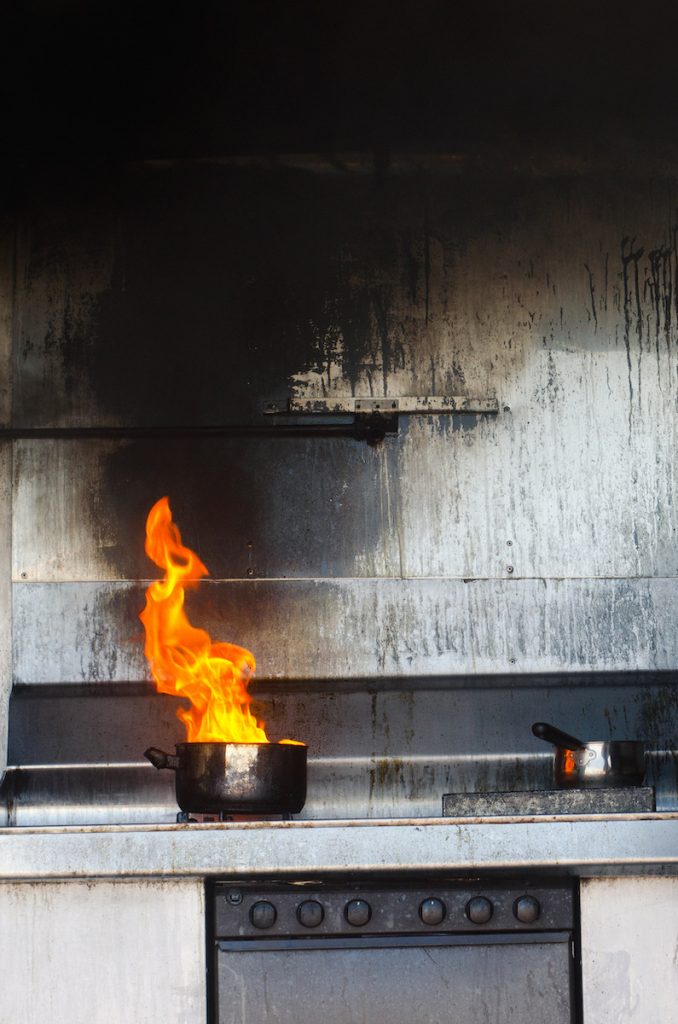
Unattended Food
Do not leave cooking food unattended. Please remain in the kitchen, especially if you’re preparing something very flammable and the oven is on at high heat. If you must leave the room for a short time, make sure someone is available to monitor the process in your place or turn off the heat source completely.
Use a Cooking Timer
Using a cooking timer can ensure that food will not be left unattended on the stovetop before it can burn. Additionally, keeping track of the time when baking or cooking food in the oven helps you avoid forgetting to take it out when it’s done.
Wipe Up Spills
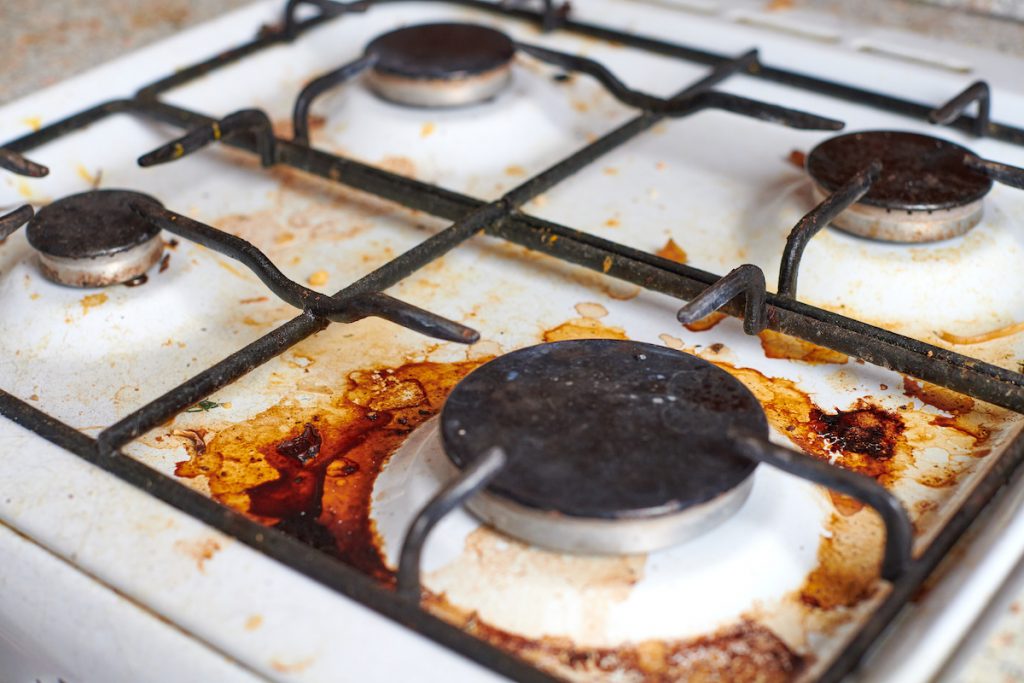
One of the best ways to prevent a kitchen fire is to wipe up spills and messes as soon as they happen. Even a tiny amount of liquid can quickly spread and lead to a potential blaze if it comes in contact with a heat source, especially if the liquid is flammable.
Cluttered Kitchen Counters
One cause of kitchen fires is a cluttered kitchen counter. Pots, utensils, and other culinary tools scattered around a cooking space can easily catch fire. Such a mess can also make a fire more difficult to put out. Be sure to keep your cooking space organized and clear. Store pans in cabinets or drawers; place flammable objects like dish towels and oven mitts away from the stove.
Wear Appropriate Clothing
Always wear appropriate clothing when cooking. Loose-fitting clothes can easily catch fire, so wearing something safe for the kitchen is best. You may want to roll up long sleeves if necessary. Please do not wear anything that has oil splatters on it.
Wait for Grease or Oil to Cool Before Disposing
Flammable liquids and fires do not mix, as we all know. When grease or oil heat on the stovetop, it doesn’t take long to reach an extreme temperature. Do not pour hot grease or oil down the sink before they cool; the still-hot liquid can splash dishes and come into contact with exposed skin. Please wait until the grease or oil is completely cool and pour it into a container to toss in the trash.
Check Your Smoke Detector

Smoke detectors are usually located near the kitchen to provide an early warning in the event of a fire. However, smoke detectors only work if they are on and perform at optimal capacity. Make sure to test your smoke detector regularly and replace the batteries as needed. If your smoke alarm sounds, don’t ignore it. Evacuate your home as soon as possible and call 911. Don’t disable your smoke alarm, even if it goes off while cooking. Instead, try to identify the source of the smoke and eliminate it.
Kitchen fires are a severe hazard and can cause extensive damage to your home. Taking the necessary precautions to keep yourself and your family safe is essential. Do not try to fight the fire yourself, as you could be injured or even killed. Instead, call 911 and let the professionals handle it.
For Professional Fire Damage Restoration Services, Contact PuroClean
For professional and immediate fire damage repair or smoke remediation services, do not hesitate to contact PuroClean. As “The Paramedics of Property Damage®,” we are the first responders to your commercial property emergency. Our experienced and highly-trained professionals are available 24 hours a day, seven days a week. To schedule an appointment with your local PuroClean office, please visit our website or call us at (800) 775-7876.
